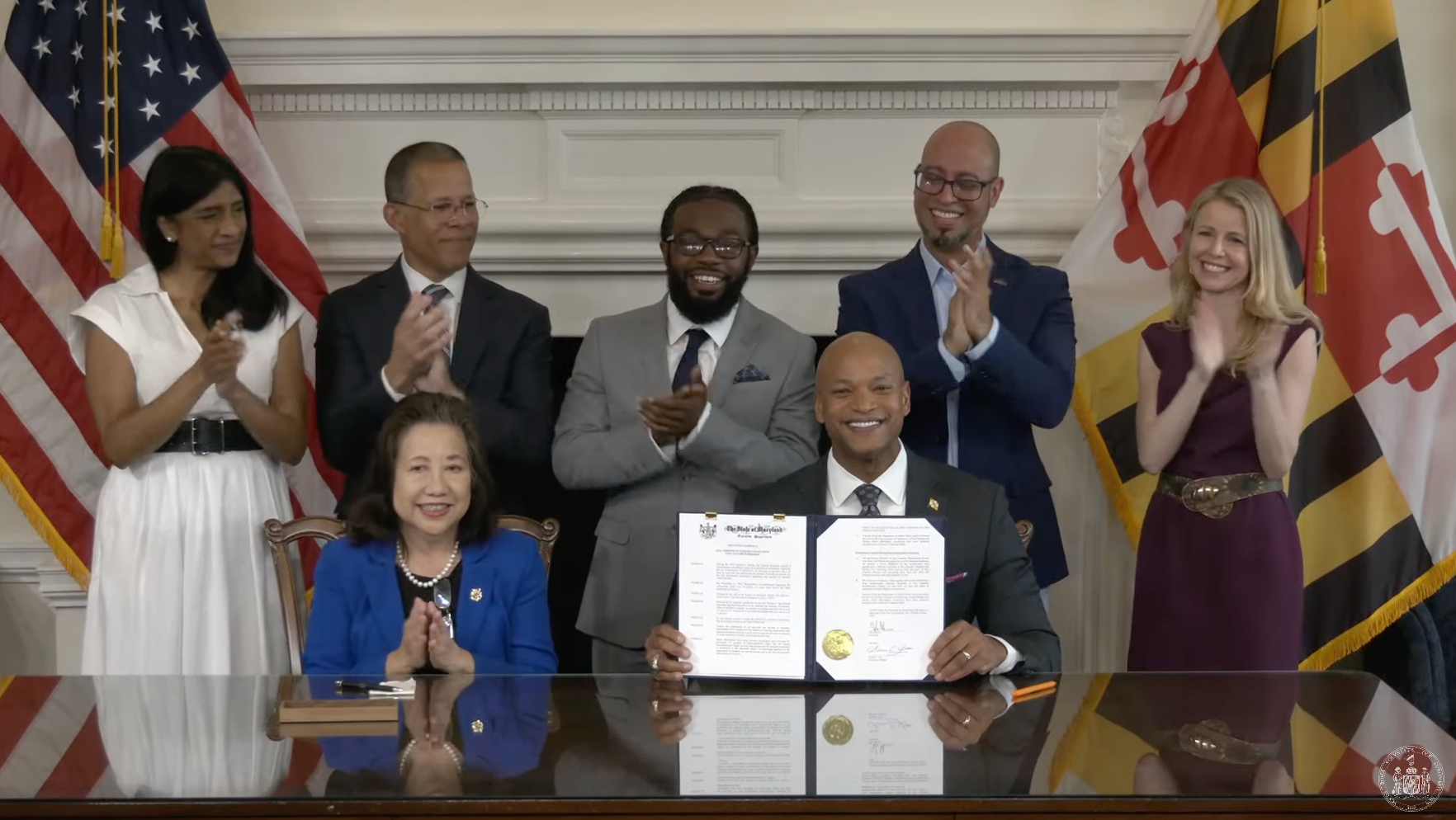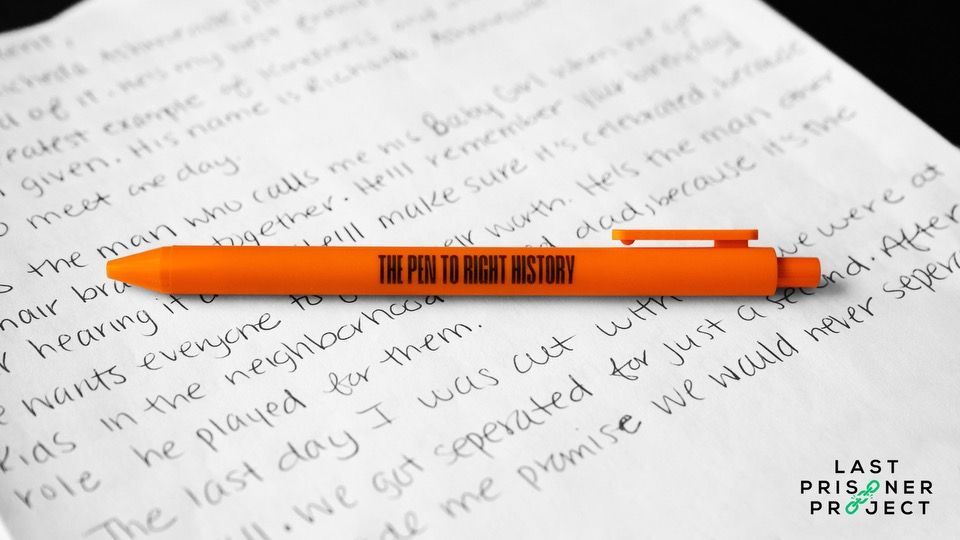Maryland Governor Wes Moore Signs Historic Cannabis Executive Order Using LPP’s Pen to Right History

The Same Pen LPP’s Constituents Used to Write Letters Demanding Justice for Loved Ones Suffering from Cannabis Convictions.
PRESS HERE FOR PARDON PHOTOS AND VIDEOS
Annapolis, MD (June 17, 2024) - Today, as people across the country continue to suffer consequences of cannabis criminalization even in states where it is now legal, we celebrate a historic step toward ending this hypocrisy in Maryland. Alongside justice advocacy organizations, including Last Prisoner Project (LPP), Governor Wes Moore (D-Maryland) has signed an executive order granting the largest state cannabis pardon to date.
LPP applauds Gov. Moore and his administration’s actions to rectify racial disparities caused by cannabis prohibition, including this historic pardon that goes further than any previous cannabis clemency grant by including cannabis paraphernalia charges, in addition to possession charges. Together, more than 175,000 convictions will be pardoned.
Symbolically, Governor Moore has granted these pardons using LPP’s “Pen to Right History” – a pen that loved ones of people impacted by cannabis incarceration around the country have used to write letters to elected officials asking for justice. By using the pen, Gov. Moore joins LPP and all of their constituents in challenging other governors and leaders across the country to take up this “Pen to Right History” in their own states.
This action follows President Biden's continued call on governors to grant cannabis clemency after he pardoned an estimated 13,000 people for simple possession. LPP has amplified this call through our Pardons to Progress campaign that has sent tens of thousands of letters to governors across the United States. Having answered the call today, Governor Moore brings Maryland forward as a champion of cannabis justice, as evident in our State of Cannabis Justice Report.
Today marks another step toward reparative justice and to undoing the harms of the War on Drugs. These pardons will provide much needed relief for individuals looking for housing, employment, and educational opportunities. They will also help end the racial disparities caused by years of over enforcement as Black people have been arrested at twice the rate of their white counterparts in Maryland.
Sarah Gersten, Executive Director of Last Prisoner Project said, “It has been nearly a year since Maryland passed full cannabis legalization, and at the same time that some are poised to profit off of this burgeoning industry, millions more remain burdened by the collateral consequences of a cannabis conviction. LPP is proud to be part of today’s historic announcement which is a crucial step in beginning to right the wrongs of our failed approach to cannabis policy.”
We look forward to continuing to work with the governor's office, legislature, and judicial and state agencies to ensure all records are fully expunged and no remains in prison for cannabis in Maryland. There is also more to be done at the federal level for the over 3,000 individuals, including Marylanders like Jonathan Wall, who are still serving time for victimless cannabis offenses.
You can urge the President and your governor to grant cannabis clemency by sending a letter here. To learn more about our work in Maryland, please visit: lastprisonerproject.org/maryland.
For those eligible, no action is needed to receive a pardon and you can check the status of your pardon online. For full record removal via expungement, we encourage individuals to learn more here.
ABOUT LAST PRISONER PROJECT
The Last Prisoner Project is dedicated to freeing those incarcerated due to the War on Drugs, reuniting their families, and helping them rebuild their lives. As laws change, there remains a fundamental injustice for individuals whose conviction is no longer a crime. We work to repair these harms through legal intervention, constituent support, direct advocacy, and policy change.
Visit
www.lastprisonerproject.org or text FREEDOM to 24365 to learn more.







